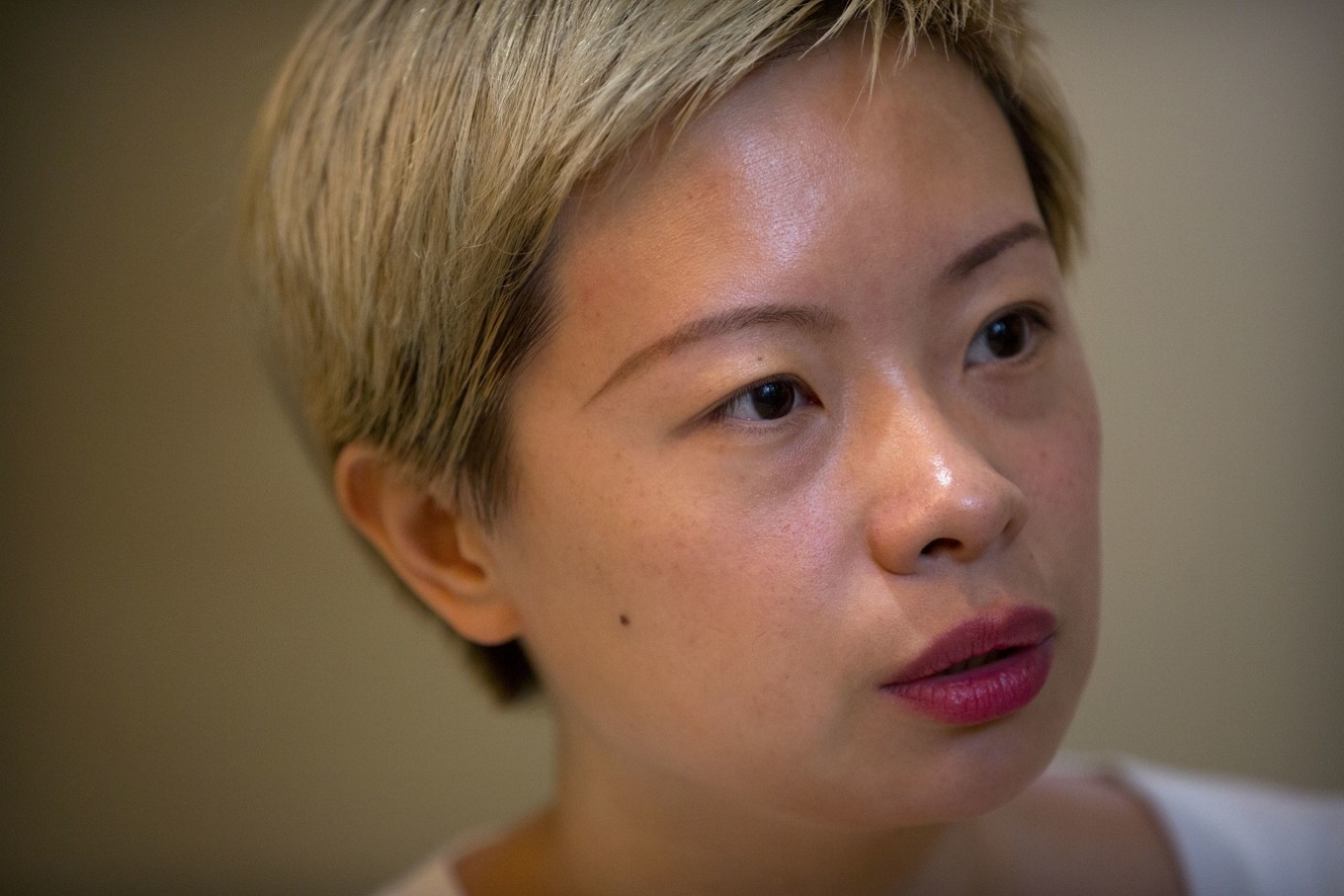Popular Reads
Top Results
Can't find what you're looking for?
View all search resultsPopular Reads
Top Results
Can't find what you're looking for?
View all search resultsProgress on depression slow in China as stigmas persist
Change text size
Gift Premium Articles
to Anyone
 In this April 12, 2017 photo, Kerry Yang speaks about her struggles with depression during an interview in Beijing. Depression as an illness went widely unacknowledged for decades in China, even as the brutalities of the Cultural Revolution and, more recently, frenetic economic growth left emotional scars. Public attitudes shifted in recent years, propelled in part by the adoption of the nation's first mental health law five years ago. (AP Photo/Mark Schiefelbein)
In this April 12, 2017 photo, Kerry Yang speaks about her struggles with depression during an interview in Beijing. Depression as an illness went widely unacknowledged for decades in China, even as the brutalities of the Cultural Revolution and, more recently, frenetic economic growth left emotional scars. Public attitudes shifted in recent years, propelled in part by the adoption of the nation's first mental health law five years ago. (AP Photo/Mark Schiefelbein)
K
erry Yang speaks openly to foreigners about the bouts of depression that have haunted her for a decade — her emotional meltdowns in college, the bruises she inflicted upon her body as a coping mechanism, her initial unsuccessful attempts at treatment.
Yet despite such candor, the 30-year-old public relations consultant from Beijing often can't bring herself to discuss her problems with her fellow Chinese, including members of her own family.
"There's a saying in China that if you display your emotions, you display weakness," Yang said.
Depression as an illness went widely unacknowledged for decades in China, even as the brutalities of the Cultural Revolution and, more recently, frenetic economic growth left emotional scars. Public attitudes have shifted in recent years, propelled in part by the adoption of the nation's first mental health law five years ago.
Read also: Dealing with depression and mental health: Let's talk
Yet Yang's case underscores that change is coming slowly within a society that traditionally viewed symptoms such as anxiety, sleeplessness or loss of appetite as isolated physical problems, not signs of mental disorder.
Families in China have been known to lock mentally ill relatives in cages or keep them in shackles for years because they were unable or unwilling to seek help. A rash of high-profile stabbings by perpetrators who were reportedly mentally ill over the past decade further highlighted the dearth of mental health services.
"Number one, it's probably not recognized and number two, if you have these problems it's personal, so 'take care of it on your own,'" said Michael Phillips, a professor of psychiatry at Shanghai Jiao Tong University School of Medicine and at Emory University in the United States.
More than 50 million people in the world's most populous country suffer from depression, according to the World Health Organization, which has made depression its signature issue for 2017. Apart from the toll on the afflicted, depression results in an estimated $8 billion in annual losses to productivity from missed work days, medical expenses and other costs, said WHO China representative Bernhard Schwartlander.
China's 2012 mental health law, almost three decades in the making, marked a major breakthrough. It gave political support to what was conceded to be a growing problem, invited collaboration from outside experts and restricted involuntary confinement of the mentally ill except in extreme circumstances —a provision critics say still is sometimes ignored in the case of dissidents.
Read also: Men get depressed, too, let's talk about it
Previously, more than 90 percent of those with mental disorders had never sought any kind of professional help, according to a 2009 study by Phillips and several colleagues.
The new law placed schizophrenia and other psychological conditions out in the open, by expanding available treatments beyond psychiatric hospitals to include community-based services and encouraging scientific research. There's also been growing realization that mental illness can be just as burdensome to society as other chronic illnesses such as diabetes and hypertension, said Phillips.
At the end of last year, 5.4 million people had been registered by China's government as having serious mental problems, according to the National Health and Family Planning Commission, which said the quality of treatment had been "gradually improving."
For years starting in college, Yang said she coped privately with periods of uncontrollable crying, anxiety and days when she didn't want to get out of bed. She excelled in her studies, yet still came up short of the perfection she'd been taught to demand of herself. Problems in romantic relationships added to the stress.
She recalled banging her fist repeatedly during arguments and pounding her chest until her body was bruised. Rather than disturb her, she found the bruises to be a soothing outlet for her emotional pain, an act known to therapists as self-harming.
Yang finally sought help five years ago, visiting two public hospitals, where she found the care impersonal and unhelpful, and then a private counselor.
Read also: Instagram may actually help with depression, study suggests
"I actually have trouble talking to a Chinese therapist because I'm uncomfortable speaking about this in my native tongue," she said.
Yang's parents were supportive but somewhat baffled. She said her mother didn't know depression existed, while her father wanted to "fix" her, but didn't know how.
Only after leaving China for a master's degree program in Australia did Yang find help. She returned to Beijing three years ago and began seeing a Chinese-Australian psychotherapist, Sami Wong, after her depression returned last fall. They speak primarily in English.
Despite the progress in recent years, mental health resources remain stretched thin even in major cities such as Beijing and Shanghai. Nationwide, there are 27,733 psychiatrists or about two for every 100,000 people, according to the health commission. Russia and the United States have more than five times as many per capita, Schwartlander said.
The shortage of trained caregivers is most acute outside urban areas, said Zhang Yunshu, a psychiatrist who deals with rural patients in eastern China's Hebei Province. To fill that gap, the government has encouraged more students to enter the field and brought psychiatrists from the city out to the countryside to train general medicine doctors on the basics of psychiatric care.
Besides the cultural forces at play, Wong, Yang's therapist, said she sees a generational divide among her clients. That's particularly true of people like Wong's mother, who lived through the Cultural Revolution, a decade of political violence and chaos unleashed by Mao Zedong in which an estimated 1 million Chinese died from persecution, execution or suicide.
"Compared to that hardship, the feeling of depression is perceived as quite light," Wong said. "Compared to fear, depression is nothing."
WHO representative Schwartlander said China's contemporary rulers have accepted the need to address depression and mental illness. And just as the country has lifted hundreds of millions of people out of poverty in the recent past, he believes with enough political will it can address its mental health needs.
Yang said it will take more than the WHO depression awareness campaign motto of "Feeling down? Let's talk" to ease the stigma associated with the disorder. She said China also must expand services so those with depression will have someone to listen.
"Otherwise it just opens a wound," she said. "It's just slicing people open, and then they could become desperate."










